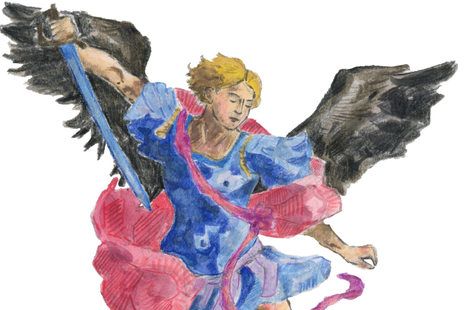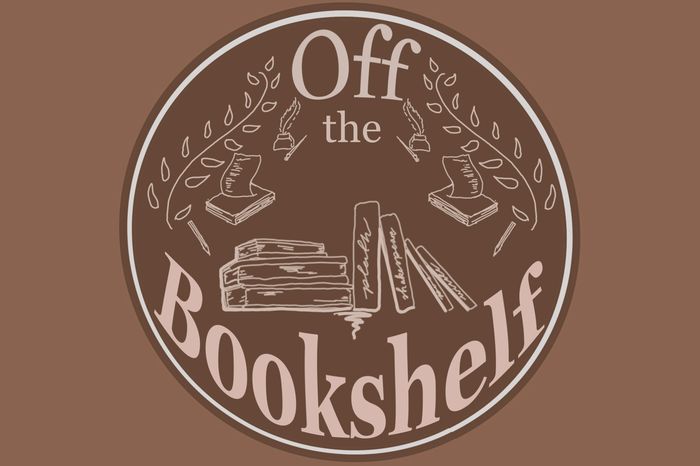Off the bookshelf: ‘Michaelmas’, Malcom Guite
In this column, the arts editors discuss the sonnet ‘Michaelmas’ by Malcom Guite

“Michaelmas gales assail the waning year,
And Michael’s scale is true, his blade is bright.
He strips dead leaves; and leaves the living clear
To flourish in the touch and reach of light.
Archangel bring your balance, help me turn
Upon this turning world with you and dance
In the Great Dance. Draw near, help me discern,
And trace the hidden grace in change and chance.
Angel of fire, Love’s fierce radiance,
Drive through the deep until the steep waves part,
Undo the dragon’s sinuous influence
And pierce the clotted darkness in my heart.
Unchain the child you find there, break the spell
And overthrow the tyrannies of Hell.”
Ryan Vowles - Arts Editor
In the poem, we are first introduced to the Archangel Michael, ‘the great prince who protects [God’s] people’ (Daniel 12:1), in his role as God’s warrior and judge. St. Michael, having defeated Satan in heaven, is our guardian against darkness. It’s sensible then that his feast day, Michaelmas on September 29th, comes just as winter’s darkness begins to creep in. As the ‘dead leaves’ brown – an autumnal symbol of Satan’s corruption – it is Michael who strips them away and exposes us to God’s ‘light’.
St. Michael’s war with Satan is a metaphor for the moral struggle within each of us: the clashing of our good and bad impulses. Guite’s prayer, beginning in the fifth line, lays out a path to victory in this struggle. He asks for Michael, a warrior, to help him dance, to show him the silver linings in unwanted surprises, and for his inner child to be unchained. Whether we believe in the Archangel or not, Guite suggests that flexibility, gratitude, and childlike wonder are key to not only happiness, but to moral virtue.
Emily Cushion - Arts Editor
Guite playfully sways our minds from the typically unwelcome connotations of Michaelmas: returning from summer to weekly deadlines; freezing walks to 9am lectures; the bizarre notion of Christmas in autumn. Rather, he digs into what Michaelmas actually means (and no, I’m not referring to the much anticipated return of Wednesday Revs) in his discussion of the Archangel Michael. Guite disrupts the conventional sonnet in brief moments of deviation from iambic pentameter, as if the poem’s metre has been blown about by such ‘gales’ as it discusses (exactly how I feel walking around Sidge in October). Alongside this, Guite nurtures moments of familiarity in what is constant – regular lines, internal rhyme – suggesting that despite Michaelmas’s ‘clotted darkness’ (the night literally being longer, or the week five blues), there is light to ‘flourish in’ (Parker’s Piece Christmas market, for example). Michaelmas indeed teaches us to ‘trace the hidden grace in change and chance’ – to embrace what is new – and to ‘unchain the child you find there’ – to remember what has passed.
 News / Christ’s announces toned-down ‘soirée’ in place of May Ball3 February 2026
News / Christ’s announces toned-down ‘soirée’ in place of May Ball3 February 2026 News / Right-wing billionaire Peter Thiel gives ‘antichrist’ lecture in Cambridge6 February 2026
News / Right-wing billionaire Peter Thiel gives ‘antichrist’ lecture in Cambridge6 February 2026 News / John’s duped into £10m overspend6 February 2026
News / John’s duped into £10m overspend6 February 2026 News / Epstein contacted Cambridge academics about research funding6 February 2026
News / Epstein contacted Cambridge academics about research funding6 February 2026 News / Corpus FemSoc no longer named after man6 February 2026
News / Corpus FemSoc no longer named after man6 February 2026










